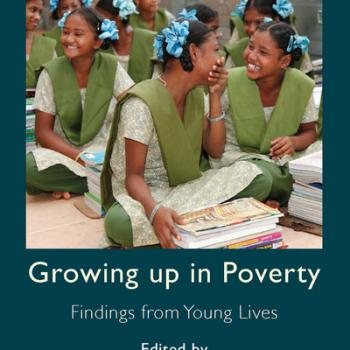Publication Information

In the context of developing countries, there have been few recent empirical studies investigating parental background correlates of children?s cognitive skills, and even fewer studies looking at the background factors associated with children?s psychosocial skills. These studies have considered the roles played by parental socio-economic status (SES), as measured by income or education, in shaping a child?s cognitive and psychosocial skills and the extent to which a mother?s cognitive and psychosocial skills predict the same skills in her child. Nevertheless, to date, there is no evidence from developing countries on the extent to which the mother?s skills predict not only the same but also other skills in her children. Moreover, although existing evidence supports a strong positive link between parental SES and a child?s developmental indicators, very little is known about whether this association is robust when controlling for other possibly omitted background factors.
This chapter addresses these gaps in the literature by looking at the association between parental SES and the mother?s psychosocial skills on the one hand, and the child?s human capital at the age of 8 on the other ? in Ethiopia, India (in the state of Andhra Pradesh), Peru, and Vietnam ? using data from the Young Lives study. In particular, we investigate the following questions, on which there is little published evidence from developing countries:
What is the extent of the intergenerational transmission of psychosocial skills? What is the link between the mother's psychosocial skills and the child?s cognitive skills? What share of the association between the mother's psychosocial skills and the child's cognitive skills is mediated through the child?s psychosocial skills? To what extent do maternal psychosocial skills explain the association between parental SES and children?s cognitive and psychosocial skills?We also investigate how the answers to these questions vary across the four study countries.
The final published version of the book chapter is available on the publisher's website.
Reference:
Georgiadis, Andreas and Priscila Hermida (2014) 'Family Socio-economic Status, Mother?s Psychosocial Skills and Children?s Human Capital: Evidence from Four Low- and Middle-Income Countries ', in Michael Bourdillon and Jo Boyden (eds) Growing up in Poverty: Findings from Young Lives (pp. 51-70). Oxford: Palgrave Macmillan.

In the context of developing countries, there have been few recent empirical studies investigating parental background correlates of children?s cognitive skills, and even fewer studies looking at the background factors associated with children?s psychosocial skills. These studies have considered the roles played by parental socio-economic status (SES), as measured by income or education, in shaping a child?s cognitive and psychosocial skills and the extent to which a mother?s cognitive and psychosocial skills predict the same skills in her child. Nevertheless, to date, there is no evidence from developing countries on the extent to which the mother?s skills predict not only the same but also other skills in her children. Moreover, although existing evidence supports a strong positive link between parental SES and a child?s developmental indicators, very little is known about whether this association is robust when controlling for other possibly omitted background factors.
This chapter addresses these gaps in the literature by looking at the association between parental SES and the mother?s psychosocial skills on the one hand, and the child?s human capital at the age of 8 on the other ? in Ethiopia, India (in the state of Andhra Pradesh), Peru, and Vietnam ? using data from the Young Lives study. In particular, we investigate the following questions, on which there is little published evidence from developing countries:
What is the extent of the intergenerational transmission of psychosocial skills? What is the link between the mother's psychosocial skills and the child?s cognitive skills? What share of the association between the mother's psychosocial skills and the child's cognitive skills is mediated through the child?s psychosocial skills? To what extent do maternal psychosocial skills explain the association between parental SES and children?s cognitive and psychosocial skills?We also investigate how the answers to these questions vary across the four study countries.
The final published version of the book chapter is available on the publisher's website.
Reference:
Georgiadis, Andreas and Priscila Hermida (2014) 'Family Socio-economic Status, Mother?s Psychosocial Skills and Children?s Human Capital: Evidence from Four Low- and Middle-Income Countries ', in Michael Bourdillon and Jo Boyden (eds) Growing up in Poverty: Findings from Young Lives (pp. 51-70). Oxford: Palgrave Macmillan.

